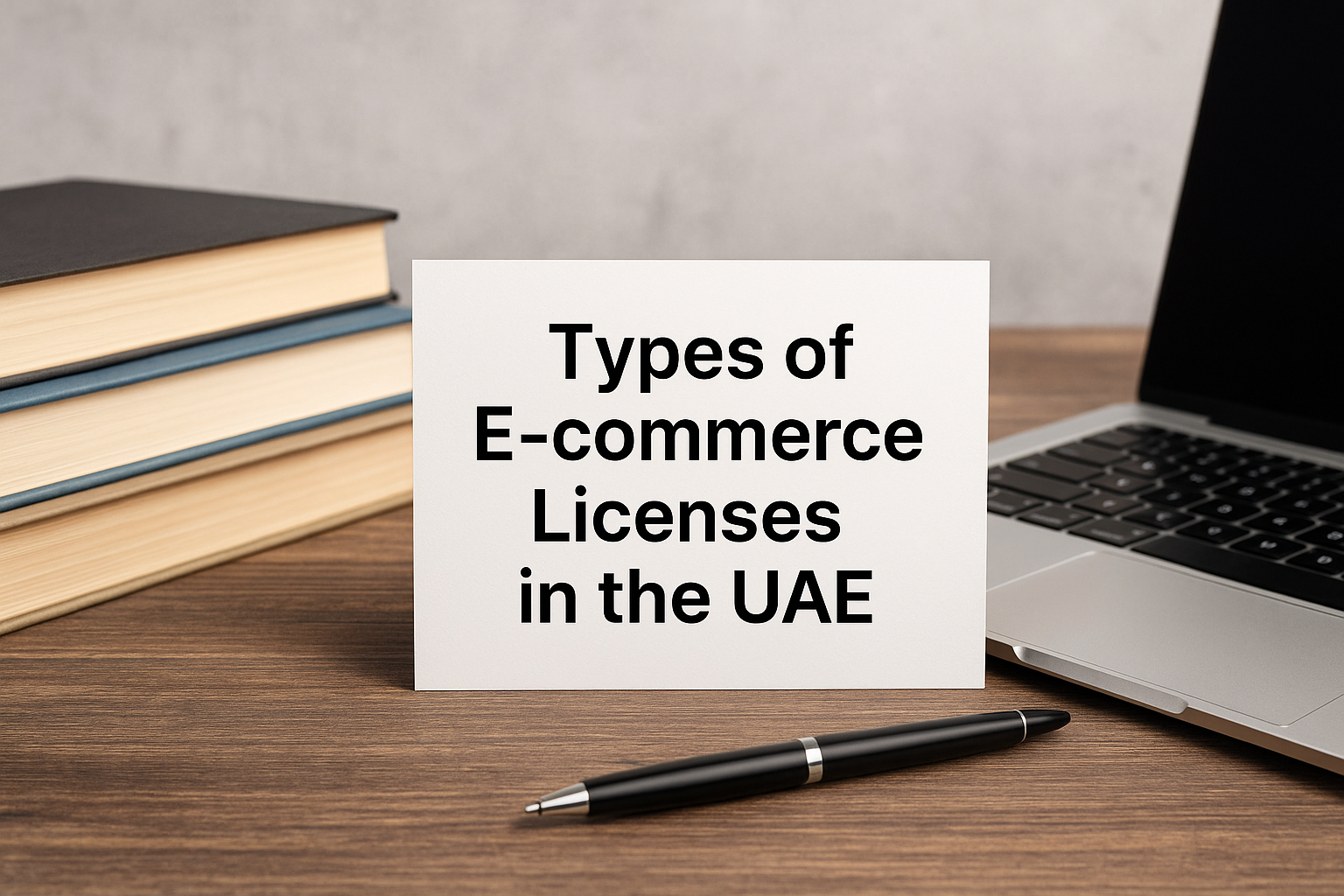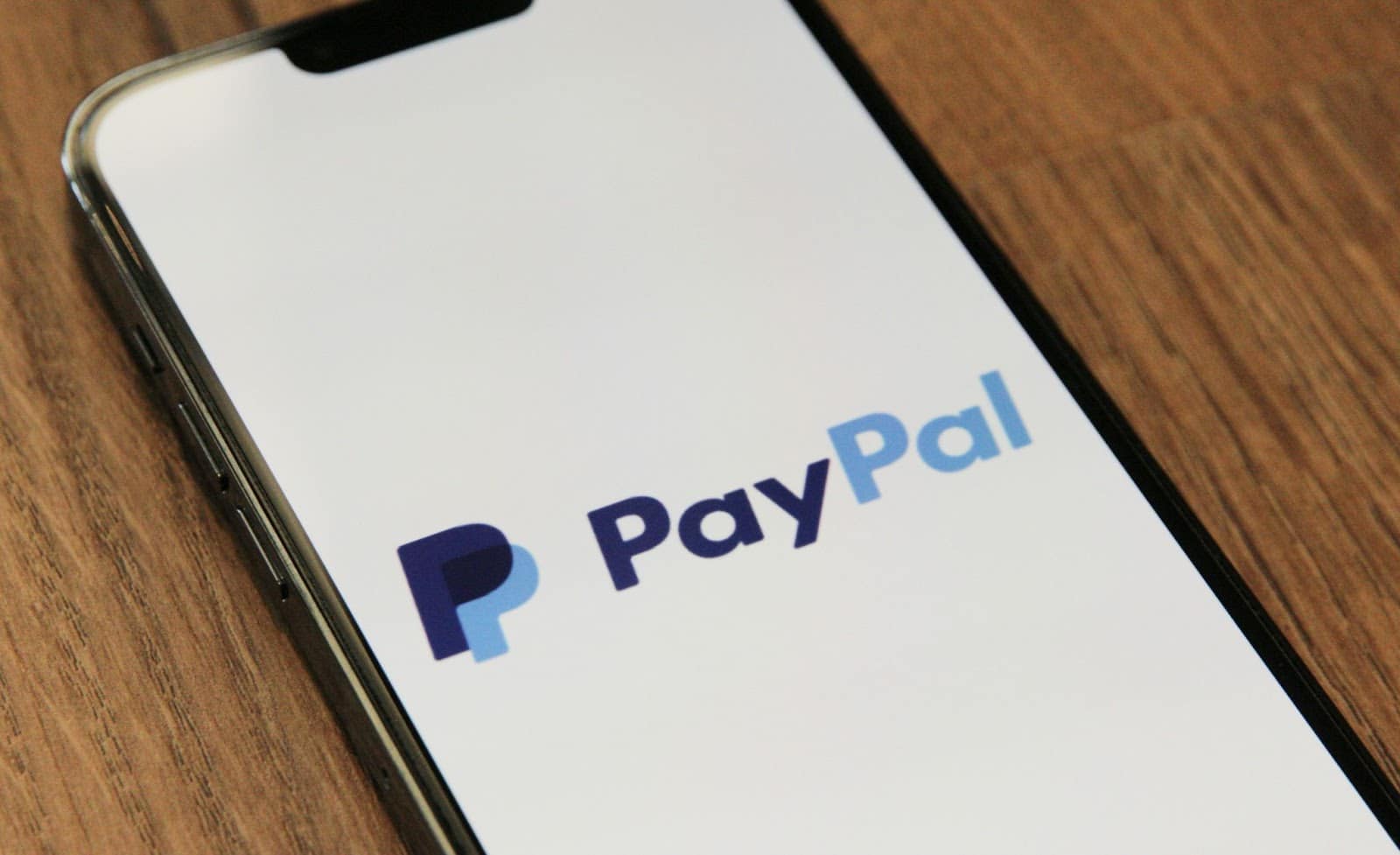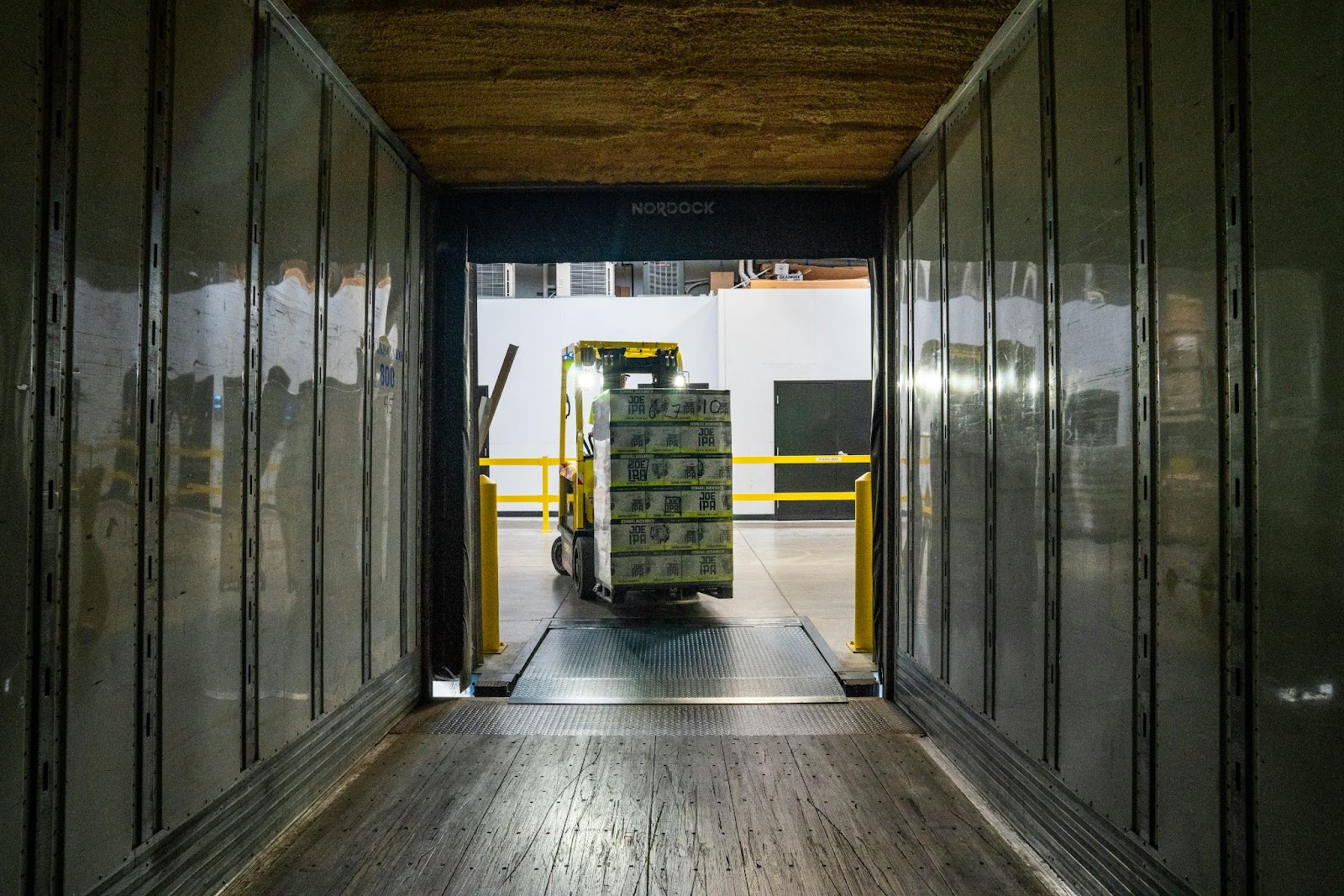Want to try setting up an e-commerce company in UAE? Here’s everything you need to know.
The UAE isn’t just about skyscrapers and luxury shopping anymore—it’s now a global hotspot for online business. Every day, more people are clicking “add to cart,” and the numbers are climbing fast. From fashion boutiques to niche tech stores, e-commerce is thriving here like never before.
Why? The reasons are plenty. Zero income tax, a booming digital economy, and a tech-savvy population make it the perfect place to launch your online venture. Add to that its strategic location connecting East and West, and you have a recipe for success.
Setting up an e-commerce company in UAE is no longer just a good idea. It’s a golden opportunity. Whether you dream of running a sleek online store or building a regional marketplace, the UAE gives you the tools, infrastructure, and audience to make it happen. The digital doors are wide open. It’s your turn to step in.
Why Start an E-commerce Business in the UAE?
Photo by Shutter Speed on Unsplash
The UAE is now setting global e-commerce trends. Over the past few years, the country has transformed into a buzzing hub for digital trade. Hence it has been attracting entrepreneurs from every corner of the world. And if you’ve ever thought about selling online, there’s no better time, or place, than now to do it, from the UAE.
A Market That’s Growing Faster Than You Think
The UAE’s e-commerce sector is booming. With one of the highest internet penetration rates in the region. And a population that loves shopping online. It is obvious why the demand is only going up.
Reports show billions of dollars flowing into online transactions each year. Even the UAE market size is expected to reach 17 billion USD this year. From groceries to luxury watches, people are buying it all from the comfort of their homes.
Zero Income Tax and Business-Friendly Policies
Tax savings are a huge motivator. The UAE offers zero personal income tax, and corporate taxes are minimal compared to many other countries. On top of that, the government has streamlined processes to make business setup faster and easier. This means fewer headaches and more focus on growth.
The Perfect Location for Global Reach
The UAE sits right between Europe, Asia, and Africa. This prime location makes it a natural gateway to multiple markets. Shipping and logistics are world-class, with airports and seaports connecting you to millions of customers beyond the country’s borders.
A Tech-Savvy, High-Spending Audience
UAE residents are digital natives. They’re quick to adopt new tech, trust online payments, and aren’t shy about spending. The average transaction value here is higher than in many global markets, which means your potential profit margin could be impressive.
Government Support for Digital Commerce
The UAE government isn’t just passively watching the growth of e-commerce. It’s actively pushing it forward. Initiatives like Dubai CommerCity, cashless payment drives, and digital infrastructure development make starting and scaling your online business easier than ever.
Low Entry Barriers for Entrepreneurs
Gone are the days when launching a business meant massive overhead costs. With the rise of free zones and flexible licensing options, setting up an e-commerce company in UAE has become more affordable and less time-consuming. In some cases, you don’t even need a physical office to get started.
The Future is Digital, And the UAE Knows It
E-commerce here is not a passing trend. It’s becoming a central part of the UAE economy. With constant innovation in payment systems, logistics, and customer experience, the opportunities are only getting bigger.
In short, the UAE offers the perfect blend of opportunity, infrastructure, and audience. For entrepreneurs with vision, it’s a place where ideas can turn into thriving online empires. Faster than you might imagine.
Types of UAE E-commerce License

Before you can sell a single product online in the UAE, you need the right license. Think of it as your golden ticket. Without it, your business can’t legally operate. The good news? The UAE offers several types of e-commerce licenses, each designed for different needs and goals.
Choosing the right UAE e-commerce license is the first big step in setting up an e-commerce company in UAE.
1. Mainland E-commerce License
A mainland license allows you to trade freely across the UAE without any location restrictions. You can sell directly to customers and even take part in government contracts. The Department of Economic Development (DED) in each emirate issues this license.
Pros:
- Freedom to trade anywhere in the UAE.
- Ability to work with both private and government entities.
Cons:
- May require a local service agent (depending on the activity).
- Slightly higher setup costs compared to some free zones.
2. Free Zone E-commerce License
If you want flexibility, 100% foreign ownership, and lower setup costs, a free zone license might be perfect. Popular options include Dubai CommerCity, Sharjah Media City (Shams), and RAKEZ.
Pros:
- Complete foreign ownership.
- Often includes office space or virtual office facilities.
- Access to world-class logistics within the free zone.
Cons:
- Direct trade with the UAE mainland requires a local distributor or an additional permit.
3. Offshore E-commerce License
Offshore licenses are more specialized. They’re ideal if your e-commerce operations will be managed from the UAE but primarily serve international markets. You can still enjoy tax benefits and easy banking, but you can’t sell directly within the UAE.
Pros:
- Privacy and asset protection.
- Lower operational costs.
Cons:
- Not permitted to trade directly with UAE residents.
Mainland vs. Free Zone: Which Should You Choose?
If your main audience is in the UAE and you want maximum reach, a mainland license makes sense. But if you’re targeting regional or global markets, and you value full ownership, a free zone license is often the smarter choice.
Offshore setups work best for global operations that don’t rely on UAE-based customers.
Final Word on Licensing
Your UAE e-commerce license is more than paperwork. It’s the foundation of your business. Take the time to evaluate your market, audience, and budget before deciding. The right license can open doors to faster growth and fewer limitations.
In the UAE’s fast-moving digital economy, making this choice wisely is one of the best investments you can make.
Steps to Setting Up an E-commerce Company in UAE

Starting an online business in the UAE isn’t complicated. The UAE has made the process quick, clear, and business-friendly. Still, there’s a method to the madness, and following it step-by-step can save you time, money, and a few headaches along the way.
Here’s how to go about setting up an e-commerce company in UAE from scratch.
Step 1: Choose Your Business Model
Are you selling directly to customers (B2C), other businesses (B2B), or creating a marketplace for third-party sellers? Maybe you’re thinking about dropshipping. Knowing your model will shape every other decision, from licensing to logistics.
Step 2: Select Your Jurisdiction
This is where you decide between mainland, free zone, or offshore. Each has its perks and limits, so think about your target market and trading flexibility before making the call.
Step 3: Pick a Trade Name
Sounds simple, but there are rules. Your business name must reflect your activity, avoid offensive language, and not copy existing brands. The UAE takes branding seriously, so should you.
Step 4: Apply for an E-commerce License
Gather your documents, passport copies, application forms, business plan if needed, and submit them to the right authority. Mainland licenses go through the Department of Economic Development, while free zones handle their own applications.
Step 5: Open a Corporate Bank Account
Your online store will need a business bank account for transactions. The UAE’s banking sector is well-equipped for e-commerce, but requirements can vary, so prepare your trade license, company documents, and proof of address.
Step 6: Build Your Online Store
This is where your vision takes shape. Invest in a secure, mobile-friendly website. Integrate local payment gateways, ensure compliance with UAE e-commerce laws, and make sure customers can navigate your store easily.
Step 7: Get Any Additional Approvals
Some products, like food, cosmetics, or health items, require extra permits from relevant authorities. Better to get them sorted now than face delays later.
Step 8: Launch and Market Your Business
Once the legal and technical setup is done, it’s time to go live. Create buzz on social media, run ads, and maybe collaborate with influencers. The UAE’s online shoppers love discovering new brands, make yours impossible to miss.
Bottom line? The process may seem long, but it’s straightforward if you follow the right steps in the right order. With a clear plan, you can go from idea to live e-commerce store in just a few weeks, ready to tap into one of the most promising digital markets in the world.
Costs Involved in Setting Up Online Business Dubai

Starting an online business Dubai can be surprisingly affordable, or quite premium, depending on the route you take. The country offers options for lean startups and big-budget ventures alike.
But before you jump in, it’s smart to know what you’ll be spending on. After all, setting up an e-commerce company in UAE isn’t just about the license; there are several moving parts to budget for.
1. E-commerce License Fees
Your biggest initial cost will usually be the license.
- Mainland license: AED 10,000–15,000 on average.
- Free zone license: AED 6,000–12,000 depending on the free zone and package.
Some free zones offer startup packages that include office space and visas, which can help you save.
2. Visa Costs
If you plan to live and work in the UAE, you’ll need a residency visa.
- Investor or owner visa: Around AED 3,500–5,000 per person.
- Employee visas: Slightly higher depending on the role and number of staff.
3. Office Space or Flexi-Desk Fees
Even for e-commerce, you might need a physical address.
- Mainland businesses often require at least a small office.
- Many free zones offer flexi-desks or virtual offices, starting from AED 5,000 per year.
4. Website Development & Hosting
Your online store is your shopfront, so it’s worth investing in.
- Basic website fees are around AED 3,000–6,000.
- Custom e-commerce site with integrations costs AED 10,000–25,000.
- Hosting and domain fees are usually AED 500–1,000 yearly.
5. Payment Gateway Integration
Payment processors may charge setup fees (AED 500–2,500) plus a transaction percentage. Choosing a local gateway like Telr or PayTabs can save you on fees for UAE transactions.
6. Marketing & Branding
You’ll need to budget for launch campaigns, SEO, ads, and social media promotions.
Small-scale marketing costs around AED 2,000–5,000 monthly. More aggressive campaigns can run much higher, especially if you hire an agency.
7. Additional Permits & Approvals
If your products fall under regulated categories, like food, health supplements, or cosmetics, you may need extra permits. These can range from AED 500 to AED 5,000 depending on the product type.
Overall
While the numbers may seem like a lot at first glance, remember this: the UAE’s tax advantages, high spending power, and growing online market can help you recover your investment quickly. With careful planning and the right strategy, these costs become stepping stones toward a highly profitable online venture.
Popular Free Zones for E-commerce Setup

One of the biggest perks of setting up an e-commerce company in UAE is the option to start in a free zone. These business hubs are designed to make life easier for entrepreneurs, offering 100% foreign ownership, tax benefits, and simplified paperwork. But not all free zones are created equal. Some are perfect for small startups, while others are built for global-scale e-commerce giants.
Let’s take a quick tour of the most popular options.
1. Dubai CommerCity – The E-commerce Specialist
Dubai CommerCity is the UAE’s first free zone dedicated entirely to digital commerce. It offers everything from warehouses to advanced logistics and even marketing support. Located near Dubai International Airport, it’s ideal if you want to ship products fast, both locally and internationally.
Best for: Businesses aiming for rapid growth in the Middle East and beyond.
2. Sharjah Media City (Shams) – Affordable and Flexible
If you want a cost-effective start, Shams is a strong contender. You can set up a business here with minimal paperwork and low license fees. Plus, they allow you to run multiple business activities under one license, which is great if you’re testing different product niches.
Best for: Startups and entrepreneurs with limited budgets.
3. Ajman Free Zone – Simple and Straightforward
Ajman Free Zone has become a popular choice for e-commerce businesses thanks to its quick setup process and competitive pricing. Its location near Ajman Port makes it convenient for import/export activities.
Best for: Small to medium-sized e-commerce traders.
4. Ras Al Khaimah Economic Zone (RAKEZ) – Cost-Effective for Global Trade
RAKEZ offers one of the most budget-friendly setups for e-commerce companies. It’s known for its flexibility, allowing you to scale up as your business grows. RAKEZ also has strong logistics links for companies targeting both regional and international markets.
Best for: Entrepreneurs focusing on export-heavy e-commerce.
5. Fujairah Creative City – Remote-Friendly Setup
If you want to run your e-commerce business from anywhere in the world, Fujairah Creative City is worth considering. It doesn’t require you to rent a physical office, making it perfect for dropshipping or digital product sellers.
Best for: Fully remote e-commerce operations.
Final Word on Free Zones
Choosing the right free zone can make or break your e-commerce journey. Consider your target market, budget, and growth plans before deciding. The good news? Whichever you pick, you’ll enjoy benefits like full ownership, simplified banking, and a tax-friendly environment. Thus, making the UAE one of the best places in the world to launch and grow an online business.
Legal & Regulatory Requirements of Setting Up an E-Commerce Company in UAE

When it comes to setting up an e-commerce company in UAE, getting the license is the first, and the most important step. After all, you need to play by the rules.
So, the UAE has clear laws to keep online businesses fair, safe, and trustworthy. That’s for both sellers and customers. That’s why understanding these requirements will save you from costly mistakes, or compliance issues, later.
E-commerce Laws and Consumer Protection
The UAE takes consumer rights seriously. The E-commerce Law ensures customers get what they pay for, protects them from fraud, and sets guidelines for online sellers. You must provide clear product details, prices, return policies, and delivery timelines. Hidden fees? Not a good idea here. Transparency is key.
Data Privacy Rules
Selling online means handling customer information. UAE regulations, aligned with international standards like GDPR, require you to protect that data. This means using secure payment gateways, encrypted websites, and clear privacy policies. If you misuse data, expect heavy penalties.
VAT Registration
If your e-commerce revenue exceeds AED 375,000 annually, you must register for Value Added Tax (VAT). This applies to both mainland and free zone companies selling to the UAE market. Even if you’re under the threshold, voluntary registration can make your business look more professional to suppliers and partners.
Product-Specific Approvals
Some goods need extra permits. Selling food? You’ll need clearance from the municipality. Dealing in cosmetics or supplements? Approval from the Ministry of Health is required. Skipping these steps can lead to fines. Or even having your goods seized at customs.
Intellectual Property Protection
If you’ve built a unique brand, register your trademarks in the UAE. This keeps others from copying your logo, business name, or product designs. Brand theft happens more often than you think, and legal protection gives you the upper hand.
Advertising Standards
Even your marketing has rules. The UAE has strict guidelines on what you can and can’t advertise. Avoid making false claims or using offensive language. Social media influencers you work with also need to be licensed for promotional activities.
The Bottom Line
Legal compliance isn’t just about avoiding trouble. It’s about building trust. When customers know you’re operating by the book, they’re more likely to shop with you again and again. The UAE’s regulations may seem strict at first, but they create a safe, competitive, and thriving online marketplace. And for serious entrepreneurs, that’s a win-win.
Payment Gateway Integration in UAE

Getting paid is the most satisfying part of any business. But before those sales start rolling in, you need a secure and reliable payment gateway. For anyone setting up an e-commerce company in UAE, this step is not just technical. It’s strategic.
The right gateway can build trust, boost sales, and make transactions smooth for your customers.
Why Payment Gateways Matter
A payment gateway is more than just a “pay now” button. It’s the bridge between your customer’s card and your bank account. A bad gateway can scare buyers away. A good one? It makes payments effortless, secure, and fast. Thus, keeping customers happy and coming back for more.
Popular Payment Gateways in the UAE
The UAE offers plenty of options, both local and international. Some of the most trusted include:
- Telr – Known for competitive rates and great support for startups.
- PayTabs – Popular with regional businesses for multi-currency support.
- Network International – One of the biggest payment processors in the Middle East.
- Stripe – Ideal if you want global reach with advanced developer tools.
- PayPal – Still a favorite for customers who value familiarity and security.
Local Currency and Multi-Currency Support
One major advantage of UAE-based gateways is the ability to process payments in dirhams (AED) and other currencies. If you’re selling internationally, multi-currency support is essential. It saves customers the hassle of conversion fees and boosts your conversion rates.
Security Comes First
Customers won’t buy if they don’t feel safe. Choose a gateway that complies with PCI DSS (Payment Card Industry Data Security Standard) and uses encryption to protect sensitive data. Add visible security badges to your site. They reassure buyers that their payment details are in safe hands.
Integration Made Simple
Most gateways offer easy integration with popular e-commerce platforms like Shopify, WooCommerce, and Magento. If you’re building a custom website, make sure your developer is familiar with the API of your chosen gateway. Smooth integration means fewer payment errors and a better user experience.
Transaction Fees to Consider
Every gateway charges a mix of setup fees, monthly charges, and transaction percentages. Compare these carefully, especially if you expect high sales volumes. A gateway with slightly higher setup costs but lower transaction fees can save you money in the long run.
Finally on Payment Gateways
Your payment gateway is the heartbeat of your e-commerce store. Choose wisely, test thoroughly, and always put your customer’s convenience first. After all, the easier it is for people to pay you, the faster your business will grow.
What About Logistics & Deliveries?

When it comes to running an online store, your products don’t just need to be listed beautifully. They need to reach customers fast. In the UAE, where expectations for speed and service are sky-high, choosing the right logistics and delivery setup is just as important as building your website.
Why Logistics Can Make or Break Your E-commerce Business
In e-commerce, the sale isn’t really complete until the package is in the customer’s hands. A delay of even one day can affect trust. On the flip side, smooth and fast deliveries can turn first-time buyers into loyal fans. That’s why, when setting up an e-commerce company in UAE, logistics planning should be a top priority from day one.
Local Delivery Partners
The UAE has a wide range of reliable delivery companies. From local giants like Emirates Post to private couriers such as Aramex, Fetchr, and Quiqup, you have plenty of options. Local providers often offer same-day or next-day delivery within major cities, which is a big plus for customer satisfaction.
International Shipping Solutions
If you plan to sell beyond the UAE’s borders, you’ll need partners who can handle customs clearance and offer competitive international rates. DHL, FedEx, and UPS are popular choices for global reach. Many e-commerce businesses also work with freight forwarders for bulk shipments.
Warehousing & Fulfilment Services
To speed up deliveries, some companies choose fulfilment centres. These warehouses store your products and ship them as soon as an order is placed. This not only saves time but also reduces the hassle of packing and dispatching orders yourself.
Tech Integration for Tracking
Modern delivery services come with tracking tools that integrate with your online store. This means your customers can see exactly where their package is. A feature that builds trust and reduces the flood of “Where’s my order?” emails.
The Importance of Returns Management
Returns happen. And in e-commerce, how you handle them can shape your reputation. Offering an easy and transparent return process makes customers feel more confident buying from you, even if they’ve never purchased from your brand before.
Marketing Your Online Business in UAE

When it comes to the UAE, selling online is only half the game. The other half is making sure people actually find you. In a market buzzing with competition, you need to stand out. And here’s the exciting part. With the right marketing approach, you can.
Build Your Brand Story
Before you post ads or run campaigns, start with your brand story. Why should customers choose you? What makes your products special? In the UAE, consumers love authenticity. They want to connect with brands that share their values, whether it’s quality, sustainability, or luxury.
A well-crafted story makes your business more than just another online store. It makes it memorable.
Go Big on Digital Presence
In the UAE, almost everyone is online, and on their phones. Social media platforms like Instagram, TikTok, and Facebook are where trends begin and buying decisions happen. Use eye-catching visuals, engaging videos, and interactive content to pull people in. Don’t just sell products. Share lifestyle shots, behind-the-scenes clips, and customer stories. This approach helps you create a community, not just a customer base.
Leverage Influencer Marketing
Influencers are powerful in the UAE’s digital landscape. Partnering with local influencers can give your business instant credibility. Choose influencers who align with your niche and brand values, not just those with the biggest follower counts. Their audience trusts them, and that trust can translate into sales for you.
Use Paid Advertising Wisely
Paid ads are like rocket fuel for your online visibility. Platforms like Google Ads and Meta Ads allow you to target customers based on location, interests, and even shopping habits. Start small, test different ad creatives, and track the results closely. This way, you spend wisely and get the best return on investment.
Don’t Forget SEO
If you want long-term visibility, SEO (Search Engine Optimization) is non-negotiable. Optimize your website with relevant keywords, high-quality content, and fast-loading pages. For example, if you’re setting up an e-commerce company in UAE, make sure your website appears when people search for that.
The more you appear in searches, the more organic traffic you’ll get. Without paying for every click.
Engage with Your Customers
Marketing isn’t just about getting new customers; it’s about keeping them. Reply to comments, answer questions quickly, and ask for feedback. The more engaged your audience feels, the more likely they are to return and recommend you.
In short, marketing your online business in the UAE means blending creativity with strategy. Tell your story, use the right digital tools, and stay consistent. The customers are out there. And you just need to make sure they can’t miss you.
Common Challenges & How to Overcome Them

Starting an online business in the UAE isn’t always a straight road. There are bumps, detours, and the occasional “why is this so complicated?” moment. The good news? All challenges have solutions. And here are a few:
1. Navigating Legal Requirements
One of the first hurdles many face when setting up an e-commerce company in UAE is understanding the legal side of things. Licenses, permits, and regulatory rules can feel overwhelming at first.
The trick is not to go it alone. Partner with a reputable business setup consultant. They’ll guide you through the paperwork maze so you can focus on building your brand instead of deciphering legal jargon.
2. Building Trust with Customers
In e-commerce, trust is your currency. Many shoppers in the UAE are still cautious about buying online. They want assurance their money and personal data are safe. To win their confidence, invest in secure payment gateways, display trust badges on your site, and offer clear return policies. A friendly and responsive customer service team can also work wonders.
3. Managing Competition
The UAE’s e-commerce space is booming, and that means competition is fierce. Standing out requires more than just a nice-looking website. You need a strong brand identity, targeted marketing strategies, and consistent engagement with your audience.
Social media, influencer collaborations, and personalized email campaigns can help you carve your niche.
4. Handling Logistics Smoothly
Customers expect fast, reliable delivery. A single delay can cost you repeat business. Partnering with reliable courier services and integrating real-time tracking tools into your store can help prevent logistical headaches. Offering multiple delivery options, like same-day or scheduled delivery, also gives you an edge.
5. Adapting to Changing Trends
The digital marketplace evolves quickly. What works today might be outdated tomorrow. Keep learning, stay flexible, and follow industry trends closely. Attend local e-commerce events, participate in online forums, and be open to testing new tools and strategies.
Turning Obstacles into Opportunities
Every challenge is a chance to refine your business model. Whether it’s improving customer experience, upgrading your tech, or optimizing delivery routes, the key is to keep moving forward. Remember, success in the UAE’s e-commerce world isn’t just about having a great idea. It’s about adapting, improving, and staying resilient
Conclusion
E-commerce in the UAE is rewriting the rules of online business. And with a thriving digital economy, supportive regulations, and a tech-savvy audience, the opportunities are endless. Yes, challenges will pop up. But with the right strategy, creativity, and persistence, they become stepping stones rather than roadblocks.
Whether you’re a startup founder or a seasoned entrepreneur, setting up an e-commerce company in UAE today means building for tomorrow’s marketplace. The future here belongs to businesses that innovate, adapt, and connect with their customers on a deeper level.
So, take the leap. Build your brand. Embrace the tools, trends, and technology shaping this dynamic market. Because in the UAE’s e-commerce story, your business could be the next big chapter.


